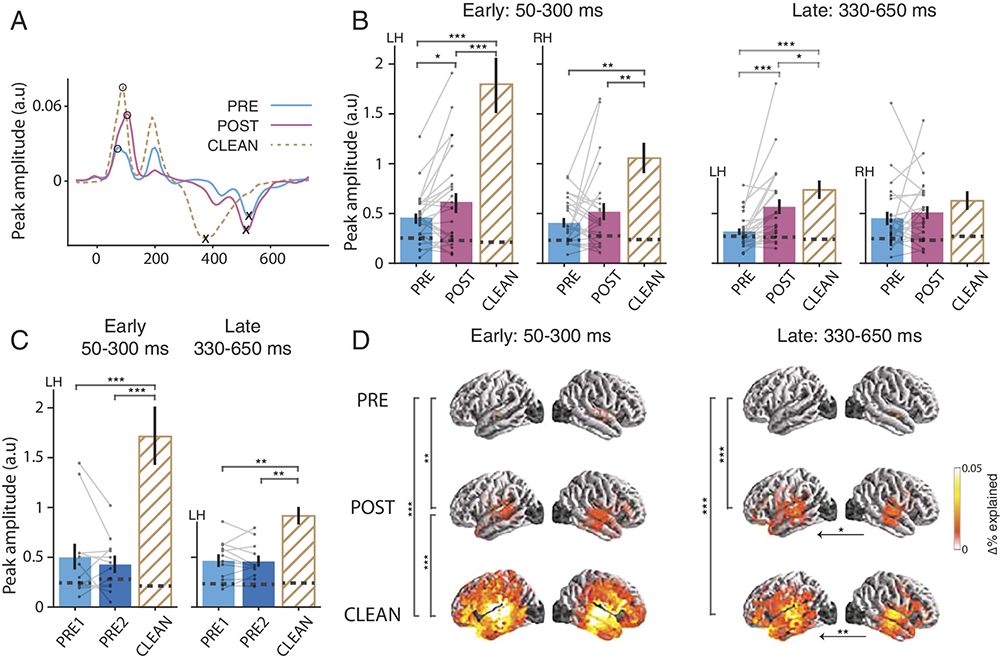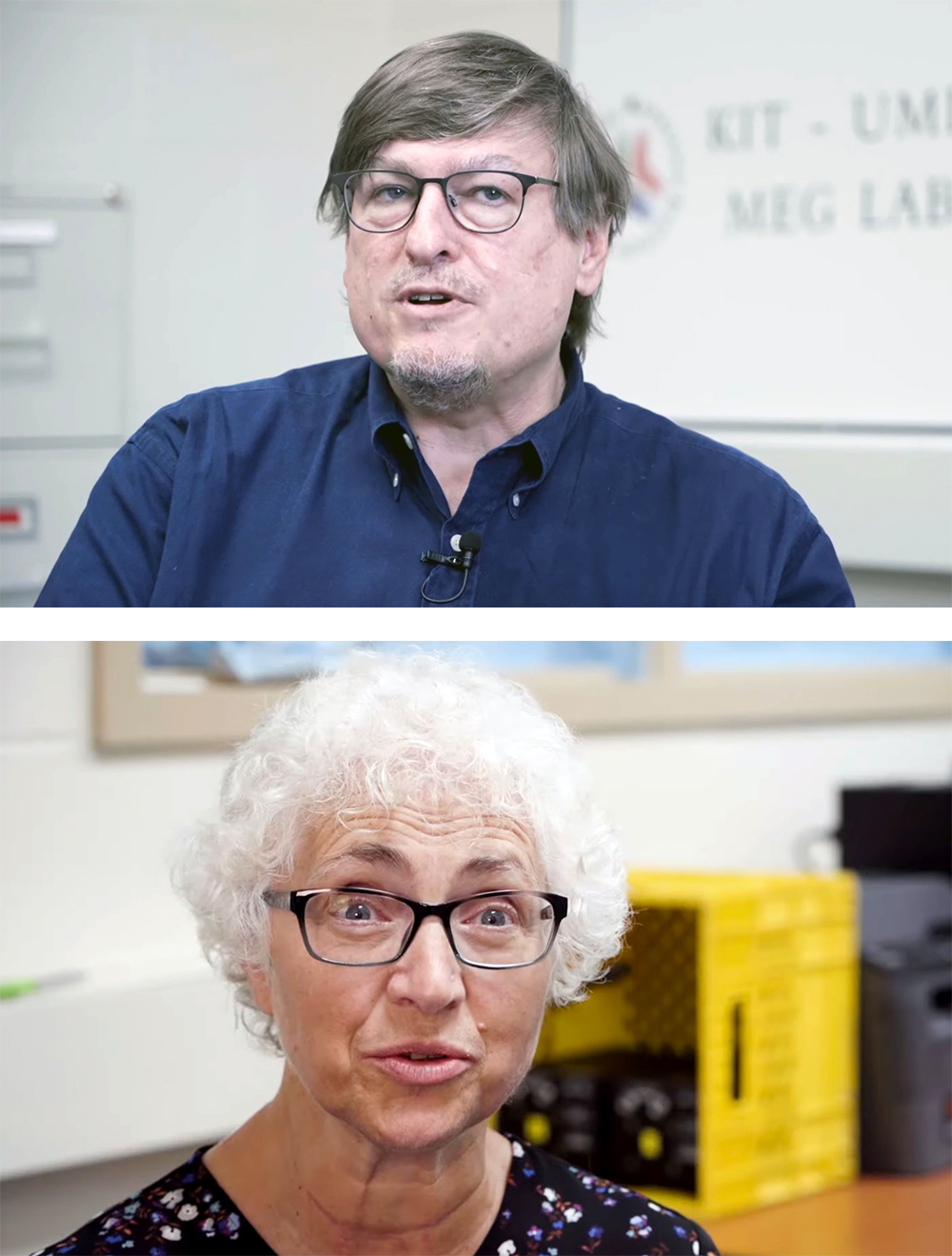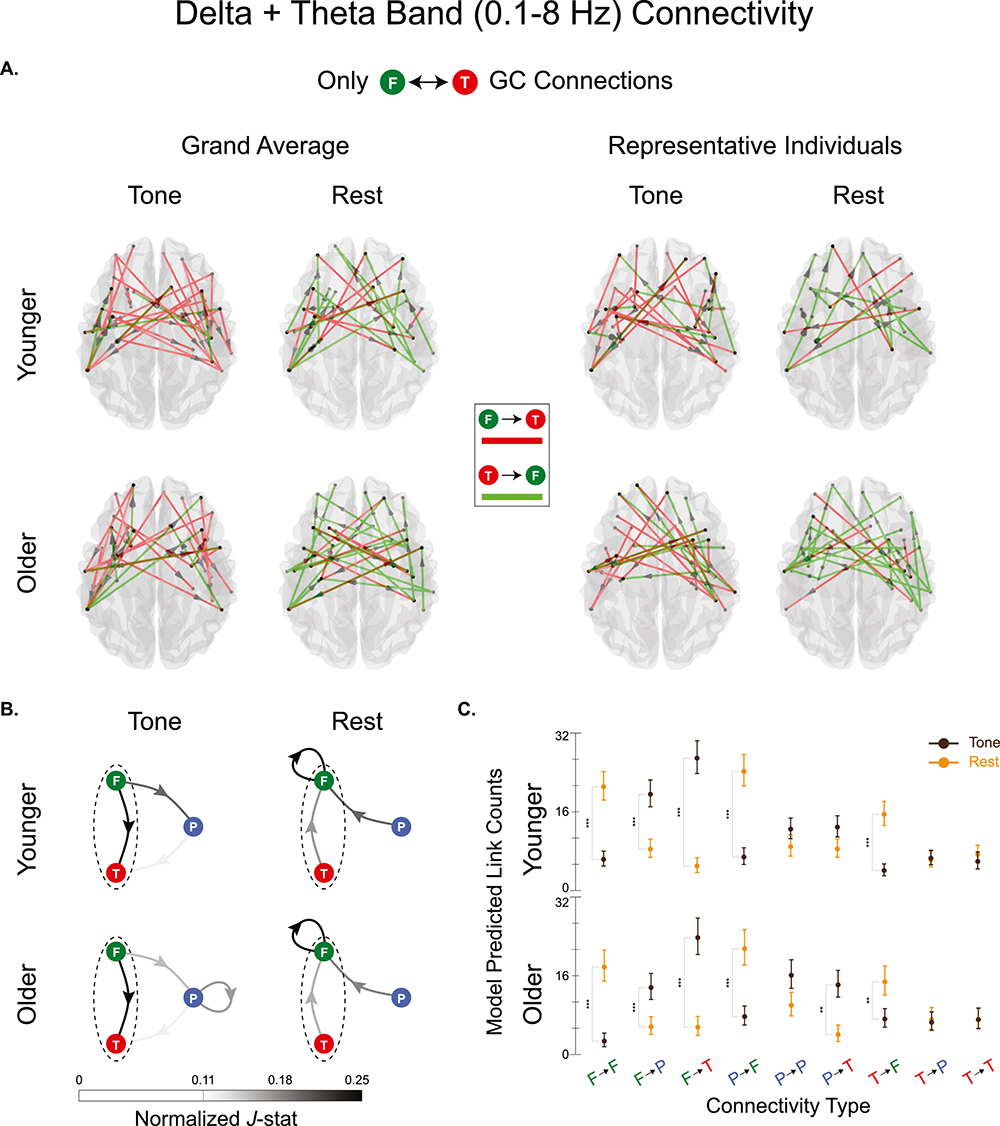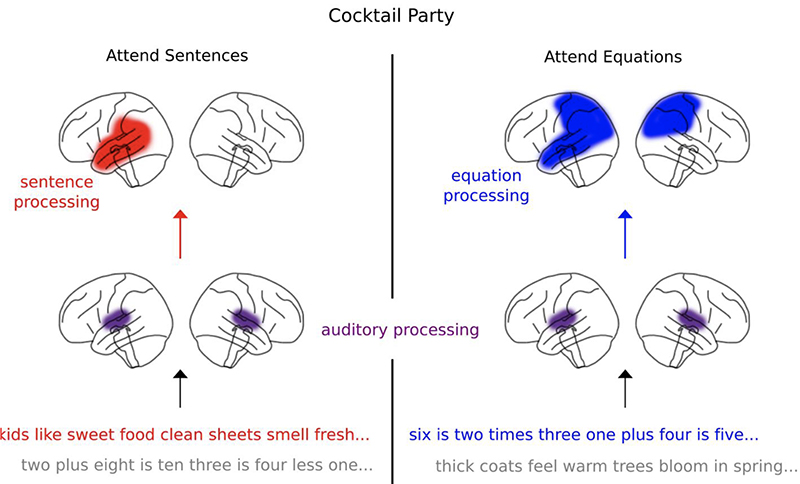News Story
Discovering a digital biomarker for post-stroke cognitive problems
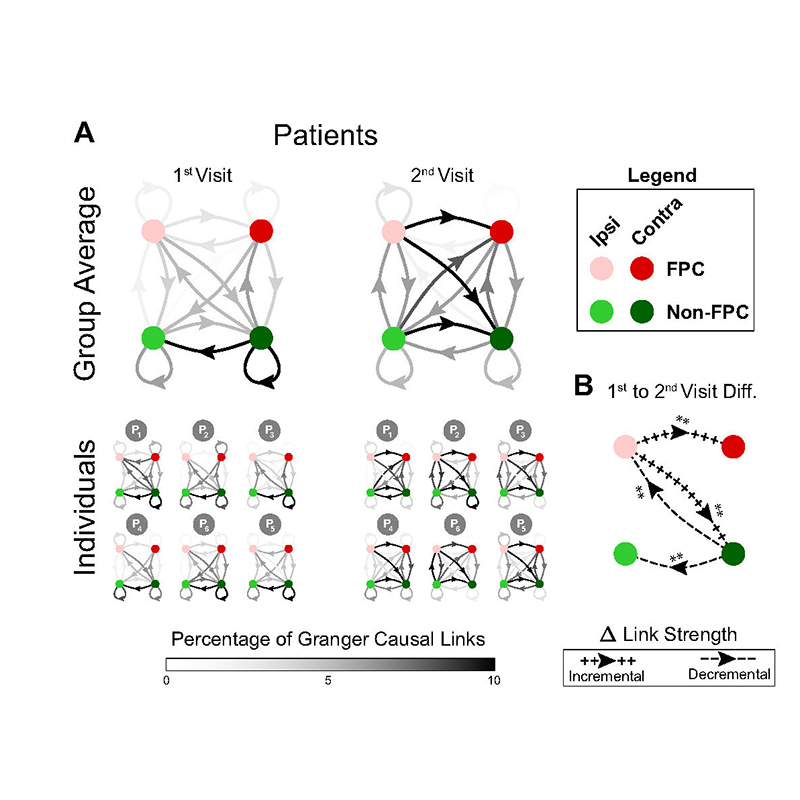
[Click image for larger view] At the six-month post-stroke second visit, stroke patients with improved cognitive scores demonstrated increased inter-hemispheric connectivity, similar to age-similar controls, that was not present at their first post-stroke visit, when they displayed clinical impairment acutely. (Fig. 3 from the research proposal)
In recent years, preemptively removing blood clots from inside arteries and veins using a surgical technique called thrombectomy has significantly improved outcomes for people who otherwise might have experienced major strokes.
As a result, today almost 80 percent of strokes are considered “small.” While this is good news, even a single small stroke can leave significant cognitive problems in its wake. While most people who have had small strokes gradually regain brain function, some persistently struggle with focus, attention, and multi-tasking without showing much improvement. This impaired functioning makes returning to work difficult and negatively impacts their quality of life.
Doctors currently cannot predict which stroke victims are at highest risk to develop persistent vascular cognitive impairment, and compensatory mechanisms that allow some to recover but fail in others are poorly understood. There is a critical need for a noninvasive, inexpensive screening tool that could be widely implemented. A biomarker that could robustly predict who will exhibit long-standing deficits would enable clinicians to initiate early interventions that could slow or even prevent decline.
Professor Jonathan Z. Simon (ECE/ISR/Biology) is a co-investigator on a new research project that aims to create such an accurate digital biomarker. “Digital Biomarkers for Vascular Cognitive Decline in Patients with Minor Stroke” is a five-year, $2.31M grant from the National Institutes of Health National Institute on Aging. The principal investigators are Associate Professor Elisabeth Breese Marsh, M.D., Johns Hopkins Medical Institute; and Professor John Compton Mosher, UT Health Houston McGovern Medical School.
The research, which began in fall 2022, uses magnetoencephalography (MEG) and electroencephalography (EEG) technology, cutting-edge analytic techniques, and machine learning to discover the biomarker. Simon is conducting the MEG/EEG imaging in KIT/UMD Magnetoencephalography Lab at the University of Maryland. His portion of the award is worth $470,581.
MEG and EEG will reveal functional network characteristics affecting both those with transient post-stroke cognitive impairment and persistent vascular cognitive impairment, as well as compensatory mechanisms responsible for recovery. A deep learning model will be employed to find shared signatures of vascular cognitive impairment, ultimately yielding a model that requires only affordable EEG data. This work should yield a powerful biomarker that can predict, soon after a stroke, which impaired patients might actually be exhibiting persistent—rather than transient—impairment.
In addition to Simon, other co-investigators include Dimitrios Pantazis, director of the MEG Lab at the Martinos Imaging Center at Massachusetts Institute of Technology; Fernando Maestu, director of the Laboratory for Cognitive and Computational Neuroscience (C3N), Universidad Complutense de Madrid; Anjail Z. Sharrief, MD, associate professor of neurology and director of stroke prevention for the Institute of Stroke and Cerebrovascular Disease at the UTHealth Institute of Stroke and Cerebrovascular Disease; and Rafael Llinas at Johns Hopkins University.
Simon and Marsh have worked together on post-stroke research for several years. In a paper published in Proceedings of the National Academy of Sciences of the United States of America in 2020, they provided the first measurable physical evidence of “PSADES,” diminished neural processing within the brain after a stroke. “Poststroke acute dysexecutive syndrome, a disorder resulting from minor stroke due to disruption of network dynamics” suggests that PSADES is the result of a global connectivity dysfunction.
They also are working together on Mindfulness Matters: The Impact of Mindfulness Based Stress Reduction on Post-Stroke Cognition, a 2021 award from the National Institutes of Health National Institute on Aging that follows on the PSADES research. Mindfulness Based Stress Reduction is being tested to see whether it can help improve cognitive outcomes in the frontal lobe during the first few months following hospitalization, when patients are making critical decisions regarding their ability to return to work or live independently.
Published February 6, 2023


